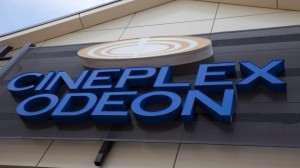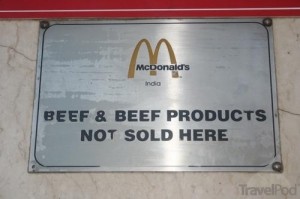Oct
24
2012

Cineplex Odeon theatre in North Vancouver.
Source: http://www.ctvnews.ca/entertainment/cineplex-earnings-soar-company-cashes-in-on-premium-ticket-prices-1.909573
The middle-age adult population has less leisure time than ever, and most of that time is not spent at the movies. In a recent move by Cineplex, three reserved screens and an exclusive five-screen facility will be unveiled to target adult-moviegoers.
Cineplex’s move to increase profit in face of stagnating ticket sales has potential to change the movie industry. By targeting a very specific segment of the population with an attractive value proposition of a kid-free ‘escape’ from reality, Cineplex has created a definitive point of difference from other theatres. With “premium tickets” currently comprising 36% of Cineplex’s box office, it isn’t a stretch to say patrons would be willing to pay extra for adult-only privileges.
With the cost of movie tickets creeping towards the twenties, movies are becoming less attractive to adults with limited time and budgets. Pairing an exclusive setting complete with traditional “date-night” amenities such as alcohol and dishes cooked by a corporate chef should allow Cineplex to capitalize on the desires of adults to make the most of their time off.
Would you be willing to pay extra for a “VIP” movie experience?
Why Cineplex put the adult back into entertainment- The Globe and Mail
Oct
14
2012
This post is in response to Mingchi Choo’s post about McDonald’s vegetarian restaurant venture here.
McDonald’s name is associated with more than beef. The chain’s popularity draws on prices and convenience, which are marketable regardless of what is in its sandwiches. McDonald’s recent move to set up vegetarian restaurants in India shows just that.

McDonald’s seeks to cater to local tastes in its expansion into India.
Opening a line of vegetarian restaurants with items friendly to both beef eschewing Muslims and pork eschewing Sikhs, especially on holy sites is differentiation that could prove hugely profitable. Opting to establish a vegetarian-ized version of McDonald’s allows the company to add to its current value proposition of quick meals at low prices and expand its target market to include culturally sensitive areas. Currently, McDonald’s prices have deterred Indian customers used to buying few rupee samosas, but with India’s rapid development, household income will increase- making fast-food a more attractive option. Will McDonald’s ‘beefed up’ reputation affect Indian patronage? Not likely, as the company entered India with the local culture in mind. None of the Golden Arches’ Indian menus offer beef, instead choosing to serve customized versions of classic American burgers. McDonald’s latest venture once again shows the chain’s ability to “cater to local tastes without losing its brand image” and will likely prove profitable as “India [is] expected to overtake China for the position of the country with the largest population.”
McDonald’s Targets Indian Pilgrams
Oct
08
2012

SiriusXM Canada, the satellite radio company formed from Sirius and XM Canada, has been consistently in the red, posting $2.6-million loss in its most recent quarter.
SiriusXM would do well to keep its current position rather than try to compete with internet radio. Since “Internet radio and radio that is available on wireless devices are complementary services to commercial radio”, convenience and choice are losing power as selling points for satellite radio. However, some consumers still favour traditional in-car radios over online streaming. SiriusXM’s only hope of growth seems to be in targeting the millions of non-subscribers with satellite radio installed in their vehicles. No installation fee and a free trial could be enough to encourage customers to explore its exclusive access to entertainment networks.
Exclusive American programming like The Howard Stern Show currently bring in the majority of SiriusXM’s customers, but the addition of local talent could create interest among Canadian entertainment supporters. However, in order to retain customers, SiriusXM should improve the interface of its in-car system before working on its internet player to prevent its main product from being seen as out-dated. A plus is that with a near-monopoly in satellite radio, SiriusXM has the potential to build a strong customer base if it targets the right demographics.
Interview with SiriusXM CEO Mark Redmond
Money-losing Sirius
Oct
01
2012
The proposed $3.4 billion acquisition of Astral Media by BCE Inc. has media giants on high alert. If the deal is approved by CRTC, it would leave Bell Media in control of more than 100 radio stations and almost 90 television channels. Bell’s closest competitor, Shaw, owns just 18 specialty channels and one network.

The major issue of BCE’s takeover of Astral is one of media concentration. If Bell becomes larger, chances are that companies that rely on Astral’s content or Bell’s networks will become marginalized or forced to accept unreasonable deals with Bell in order to keep their services running. If the BCE-Astral deal goes through, Bell will have 33.5% control of English-language television and the capacity to eliminate most domestic competition, which is essential in a market economy. Without a diverse market, there is nothing stopping Bell from charging higher prices for its services, or withholding content from competitors. With strict CRTC regulations against foreign ownership, Bell would have the capacity to run the market as they wish.
If the CRTC allows the transaction to go through, stricter regulations must be put into place against content hoarding to ensure that Bell does not have exclusive rights to content that other service providers rely on. With honest competition, Bell’s expansion could be good news for local film and TV companies, which could gain competitiveness in areas like online entertainment and target a larger audience. In the case that Bell fails to obey market rules, both consumers and competing companies will pay the price.
As BCE pursues growth, competitors cry foul


